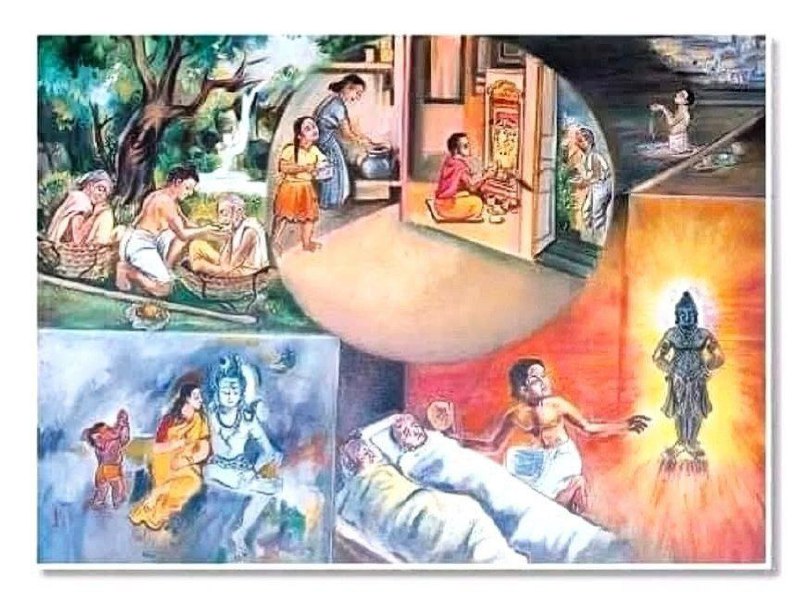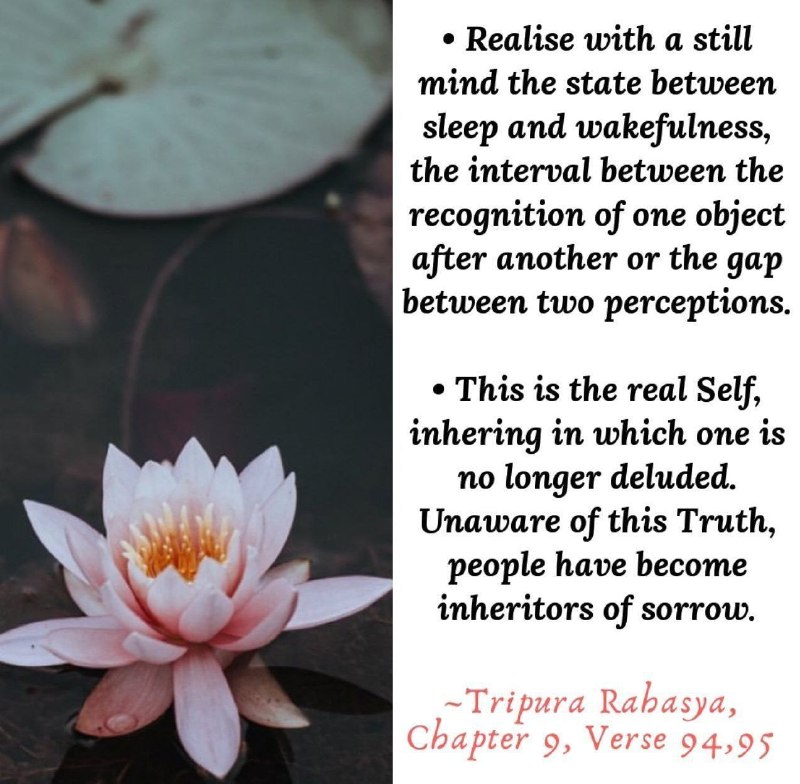Hinduism As It Is
Owner: @DivineMystic
Join us at:
•https://youtube.com/@HinduismAsItIs
•t.me/SpiritualGroup
Community chat: https://t.me/hamster_kombat_chat_2
Website: https://hamster.network
Twitter: x.com/hamster_kombat
YouTube: https://www.youtube.com/@HamsterKombat_Official
Bot: https://t.me/hamster_kombat_bot
Last updated 10 months, 3 weeks ago
Your easy, fun crypto trading app for buying and trading any crypto on the market.
📱 App: @Blum
🤖 Trading Bot: @BlumCryptoTradingBot
🆘 Help: @BlumSupport
💬 Chat: @BlumCrypto_Chat
Last updated 1 year, 4 months ago
Turn your endless taps into a financial tool.
Join @tapswap_bot
Collaboration - @taping_Guru
Last updated 11 months, 1 week ago

🌿We are all one. There is no separation between us, only we do not realize it. The same is true with rocks, with trees, with birds, with rivers: you can speak with all of them, and you will see how you can get love from everything.
~HWL Poonja - Papaji

✨ The householder should be devoted to God; the knowledge of God should be his goal of life. Yet he must work constantly, perform all his duties; he must give up the fruits of his actions to God.
~ Swami Vivekananda, Karma Yoga.

*✨*Realise with a still mind - the state between sleep and wakefulness, the interval between the recognition of one object after another or the gap between two perceptions.*✨*This is the real Self, abiding in which one is no longer deluded. Unaware of this Truth, people have become inheritors of sorrow.
~Tripura Rahasya, Chapter 9, Verse 94, 95

MUST WATCH❗️
?Lord Ganesha's Secret to Break Free From Karma?
This Timeless advice from Ganesha Gita reveals how a wise person should live and what should be done to rise beyond karmic bondage.
✨ By: Lord Ganesha ✨
•Duration - 1:00 minute
?Video Link - MUST WATCH❗️
?Lord Ganesha's Secret to Break Free From Karma?
This Timeless advice from Ganesha Gita reveals how a wise person should live and what should be done to rise beyond karmic bondage.
✨ By: Lord Ganesha ✨
•Duration - 1:00 minute
?Video Link - https://youtube.com/shorts/NiV9tw8r_q0?si=ftgiKWTgroallPw5
‼️Subscribe to our Youtube Channel for more such videos!‼️
?@HinduismAsItIs?
?@HinduismAsItIs?||✈️@SpiritualGroup✈️
#hinduism #sanatandharma #dharma #advaita #hindutva #vedanta #vedas #hindu #yoga #bhakti #karma #spirituality #spiritual #enlightenment #awareness #consciousness #truth #devotion #meditation #wisdom #nonduality #god

MUST WATCH❗️
?12 Easy and Practical Meditation Tips for Beginners?
Are you a beginner looking to start your meditation journey? Or you have started meditation and are facing difficulties and issues? In this video, we explore powerful meditation tips and guidance, that will enhance the quality of your meditation and help you grow spiritually in an effective manner.
✨ By: Paramahansa Yogananda ✨
•Duration - 8:42 minutes
?Video Link - https://youtu.be/p8j0SRDdNE0?si=oOPTJ3XP0v0TytTw
‼️Subscribe to our Youtube Channel for more such videos!‼️
?@HinduismAsItIs?
?@HinduismAsItIs?||✈️@SpiritualGroup✈️
#hinduism #sanatandharma #dharma #advaita #hindutva #vedanta #vedas #hindu #yoga #bhakti #karma #spirituality #spiritual #enlightenment #awareness #consciousness #truth #devotion #meditation #wisdom #nonduality #god

All the power of the Lord truly resides in His name. "Name" and the "one who has that name", are one and the same. So if a devotee holds onto the Lord's name [and chants it repeatedly], he's literally holding Him only. ?
Just take 1 step towards the Lord and He will take 10 steps towards you! ✨
All kinds of thoughts arise in meditation. It is but right. What lies hidden in you is brought out. Unless they rise up how can they be destroyed? They therefore rise up spontaneously in order to be extinguished in due course, thus to strengthen the mind.
Community chat: https://t.me/hamster_kombat_chat_2
Website: https://hamster.network
Twitter: x.com/hamster_kombat
YouTube: https://www.youtube.com/@HamsterKombat_Official
Bot: https://t.me/hamster_kombat_bot
Last updated 10 months, 3 weeks ago
Your easy, fun crypto trading app for buying and trading any crypto on the market.
📱 App: @Blum
🤖 Trading Bot: @BlumCryptoTradingBot
🆘 Help: @BlumSupport
💬 Chat: @BlumCrypto_Chat
Last updated 1 year, 4 months ago
Turn your endless taps into a financial tool.
Join @tapswap_bot
Collaboration - @taping_Guru
Last updated 11 months, 1 week ago